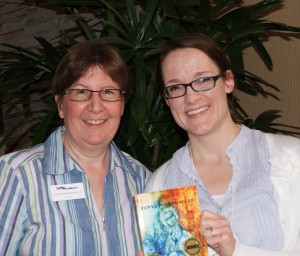Okay, having read and absorbed the comments, plus the comments last night of my own critique group, I’ve rewritten my opening, which is a prologue, and am re-classifying it as YA Fantasy. I’ll leave the original below for comparison’s sake.
(New Version)
Title: School of the Guardians
Genre: YA Fantasy
Eight miles from Salisbury in Southern England, a rather ordinary group had gathered to ponder an extraordinary circle of domino-shaped stones. Actually, it was a circle within a circle, and though it seemed in disrepair like most ancient sites, the crowd on this bright June morning had paid extra to walk among the huge slabs.
No one saw one of the archways in the outer rim glow blue for a fraction of a moment. They didn’t see it because, for the most part, they were behaving like tourists, staying with Ralph Ettingham, their guide. The adults in the group hung on his every word, pronounced with a perfect Oxford accent, and weighted here and there with references to Latin or Medieval History.
Though not tall, and despite his high-pitched voice, Ralph seemed almost as big as the stones around them. “Now according to Ælfric’s 10th century glossary, a henge-cliff meant a precipice. In other words, a hanging or supported stone. In fact, Stukely has pointed out in his notes . . . “
There were a few children in the group and, as one may imagine, all they wanted to do was romp among the gigantic monoliths. It didn’t matter one whit to them if the boulders were bluestones or sarsen stones. In their eyes, this prehistoric complex was little more than a fascinating new kind of playground, and they treated it as such, much to the exasperation of Ralph and the security guard.
All save one boy who appeared to be sniffing the stones.
(Original Version)
Title: School of the Guardians
Genre: Middle Grade Fantasy
Eight miles north of Salisbury in Southern England, a rather ordinary group had gathered to ponder an extraordinary circle of domino-shaped stones. Actually, it was a circle within a circle, and though it seemed in disrepair like most ancient sites, the crowd on this bright June morning had paid extra to walk among the huge slabs. No one saw one of the archways in the outer rim glow blue for a fraction of a moment. They didn’t see it because, for the most part, they were behaving like tourists, staying with Ralph Ettingham, their guide, and hanging on his every word, pronounced with a perfect Oxford accent, and weighted here and there with references to Latin or Medieval History.
Though not tall, Ralph seemed almost as big as the stones around them, despite his high-pitched voice. “Now according to Ælfric’s 10th century glossary, a henge-cliff meant a precipice. In other words, a hanging or supported stone. In fact, Stukely has pointed out in his notes . . . ”
There were a few children in the group and, as one may imagine, all they wanted to do was romp among the gigantic monoliths. It didn’t matter one whit to them if they were bluestones or sarsen stones. In their eyes, this prehistoric complex was little more than a fascinating new kind of playground. But then Ralph said something that stopped them in their tracks.
“You see, Stonehenge in Saxon means the hanging stones.” The beefy guide in his mid-fifties pointed to one of the inner archways.
Originally posted 2011-09-21 11:32:33.




